Just the right amount of salty!
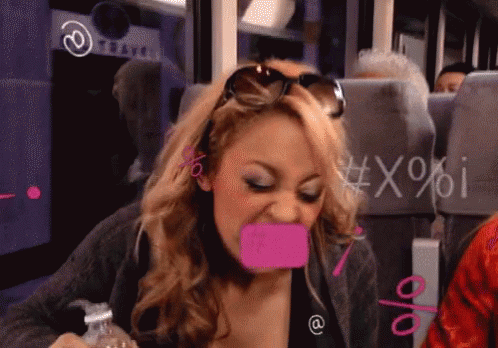
Many contemporary insults appear to lack a certain additional something, but curse words from the 1950s have them in spades. Our common four-letter words and other abrasive expressions make a point in speeches and have a place in our lexicon. However, there are times when uttering something like “get bent” or “oh, fudge” completely changes the situation. Not only that, but many of these words are considerably less insulting and possibly even endearing. Whatever your motivation, we have a few options – if you want to bring back 1950s-era swear phrases and other dated insults.
Get Bent

Telling someone to “get bent” used to essentially signify that you wanted them to pass away. In the 1950s, it was hugely popular, but it’s not something you hear much of anymore. This slang/curse term from the 1950s is one of the most fascinating examples of how language has changed over time. Today, you probably wouldn’t run into any issues if you instructed someone to “get bent” in public. However, it does have a distinctive flair. We might even want to bring it back.
Oh, Fudge
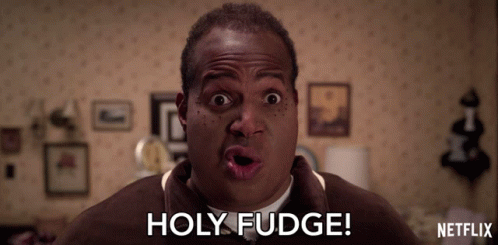
Saying “oh, fudge” instead of the customary four-letter word, as was customary in the past, sounds more retro. Because it was a little more polite and in many circumstances, their intent would be understood without offending, many people used to remark, “Oh, fudge.” You can also use the permutations of “holy fudge” or “what the fudge”.
Scram

In the 1950s, ordering someone to “scram” was a firm yet efficient method to get someone out of your face if they were getting under your skin. The term “scram” was first used in the 1950s by teens to tell their younger siblings or anyone else they did not want to be around to go. It was first used in the late 1920s.
Stuff It
More like “shut it”. Back then, people often said “stuff it” when they were angry. They may have simply said “stuff it” instead of asking them to f*ck off or shut up. And given how charming it sounds, it could be fun to use it more frequently nowadays.
Make Like A Tree and Leave
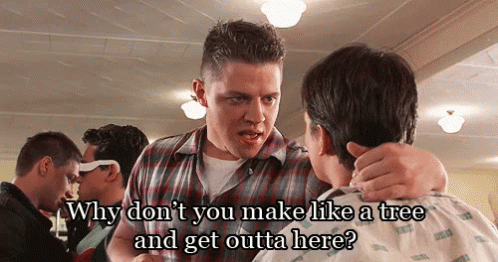
Why don’t you make like a tree and leave? – is a clever play on words that was formerly intended to be an insult, but is now just a little bit nicer than begging someone to go when you want them out of your face. It’s something like ‘scram’, but nicer.
Knuckle Sandwich
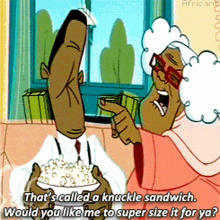
In the 1950s, threatening someone with a “knuckle sandwich” was a very serious threat. This idiom, which first appeared in urban street films like Bowery Boys in the 1950s, describes a punch to the mouth or teeth that feels like a lunch serving. While it may not have the most elegant ring to it, in some contexts, we can all admit that there is some fun and nostalgia involved with its use. It also beats a lot of the foul language and threats we may use today to describe similar intent. Of course, you don’t want to mean it literally, but it can still be a funny threat.
That’s So Mickey Mouse
When someone said that something was “so Mickey Mouse,” they were either implying that it was stupid or that it was so simple that it required no effort. And that’s probably because Mickey Mouse was usually only associated with children. This started in about 1955, following the founding of the Mickey Mouse Club and the opening of Disneyland. Teenagers who believed they were too old or too trendy for Disney most likely started this.
Riffraff
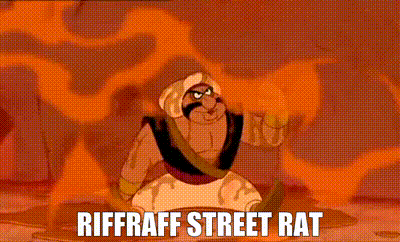
In the 1950s, this term, which was used to characterize people who were regarded as being dishonorable, was highly impolite. The verbs rifler, which means to spoil or strip, and raffle, which means to convey away, are its ancestors. Although its use today is more jocular, it ought to be reinstated as an insult.
Heavens To Betsy
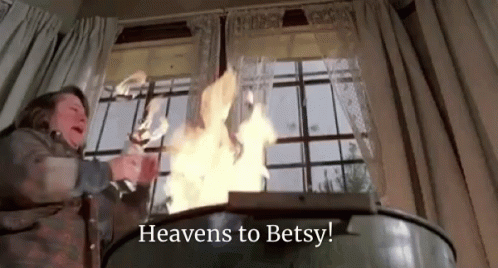
This uniquely American anachronism was employed to express surprise. Some say this phrase originated from Betsy Ross, who sewed the original American flag. Of course, using four-letter terms is always acceptable if you so want. However, saying terms like “heavens to Betsy” in place of other expressions can be entertaining.
Party Pooper
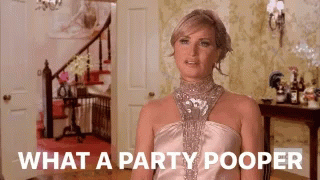
Once you’re called a “party pooper”, your cool goes off. And back then, that was not cool. In the 1950s, the phrase “party pooper” first appeared to characterize that “wet blanket” friend that wears out the party by the end of the night. These days, we may use more insulting words or phrases to make someone feel awful when they may just be sleepy. In the present era, the phrase “party pooper” looks funny and like something you can call your friend without offending them.
More on lifestyle? Read these:










